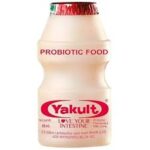Managing inflammation is an essential part of supporting cancer treatment and recovery. Whether you’re a patient, caregiver, or medical professional in Canada, understanding the best supplements for cancer support and cancer support products can feel overwhelming. But don’t worry—we’ve done the legwork. This article is your go-to guide, combining compelling stories, solid science, and practical advice to help Canadian readers navigate this critical part of holistic cancer care.
Why Anti-Inflammatory Support Matters in Cancer
Inflammation is a double-edged sword—it helps your body heal, but chronic inflammation can fuel tumor growth and disrupt treatment. According to MD Anderson, some supplements carry risks and should be used cautiously during treatment . That’s exactly why we’ve focused on verified anti-inflammatory supplements that can support quality of life without interfering with conventional therapies.
Key Anti-Inflammatory Supplements for Cancer Care
1. Turmeric / Curcumin
One of the most talked-about cancer support products, curcumin—the active compound in turmeric—is celebrated for its anti-inflammatory and antioxidant properties. Daily doses of 250–1,500 mg may help with inflammation and support heart, liver, and digestive wellness. Emerging studies highlight its ability to reduce cancer stem cells and suppress tumor growth—though human trials are still underway. In Canada, look for good-quality curcumin supplements plus black pepper or piperine for better absorption.
2. Ginger / Gingerol
Ginger, especially its key compound gingerol, is a powerful anti-inflammatory and can ease treatment-related nausea. Studies show it may also disrupt cancer cell cycles, helping reduce tumor progression . Fresh ginger tea or a reputable ginger supplement can be a comforting part of your routine.
3. Omega‑3 Fish Oil
Omega‑3 fatty acids (EPA/DHA) help modulate inflammation and boost immune function. Though some caution exists about fish oil interfering with certain chemo drugs, moderate intake is generally seen as supportive. Choose high-quality, molecularly distilled fish oil designed for therapeutic support.
4. Vitamin D
Often referred to as the “sunshine vitamin”, vitamin D is essential for immune modulation and inflammation reduction. A recent study links sufficient levels to better colorectal cancer outcomes at 1,000–4,000 IU daily. Many oncology clinics recommend monitoring and tailoring levels individually.
5. Green Tea Extract (EGCG)
Packed with antioxidant polyphenols, green tea supports inflammation control and immune health. Research shows benefits for cardiovascular health and may help control cancer metastasis . Sip 2–3 cups daily or choose high-quality EGCG supplements under medical guidance.
6. Reishi / Medicinal Mushrooms
Reishi and AHCC (from shiitake mushrooms) have become favorites in holistic cancer care. They are known for anti-inflammatory and immune-supportive effects and are popular in Asia for cancer integrative care.
7. Bromelain
An enzyme from pineapple, bromelain reduces inflammation and may prevent tumor growth in animal models. It’s often used as a post-surgery digestive aid in supportive care.
8. Fucoidan
Derived from brown seaweed, fucoidan offers anti-inflammatory, immune-enhancing, and potential anti-tumor activities. It’s rising in popularity in Western cancer care for its promising benefits.
9. Honokiol & Silibinin
Honokiol (from magnolia bark) and silibinin (from milk thistle) each have anti-inflammatory, antioxidant, and anti-cancer activity in lab studies . While compelling, human clinical data is emerging, and medical guidance is key.
Safety & Integration Tips
- Talk to Your Oncologist or Pharmacist: Many supplements interact with treatments—some antioxidants may blunt chemo’s effectiveness. Don’t self-prescribe; build your regimen with expert input.
- Buy High-Quality, Third-Party Tested Products: In Canada, choose brands verified by Health Canada or certifications like USP, NSF, or ConsumerLab to ensure safety and purity.
- Start Low, Go Slow: Introduce one supplement at a time to identify beneficial effects or side effects like nausea or diarrhea.
- Monitor Levels: Regular lab tests for vitamin D, calcium, or drug levels help customize dosage.
- Diet Is Still Key: Supplements are support tools—not a substitute for anti-inflammatory whole foods like fruits, veggies, fatty fish, nuts, and turmeric-spiced meals.
Real-Life Impact: Sarah’s Story
Sarah, a 52-year-old breast cancer survivor from Ontario, struggled with joint pain during treatment. Her integrative team added curcumin, fish oil, and vitamin D. Within weeks, she noticed less stiffness and more energy. Regular testing confirmed her vitamin D levels were optimal. Sarah’s story highlights how supplements for cancer support can be a gentle yet effective complement to medical care when used thoughtfully.
Quick Reference Table
|
Supplement |
Main Benefits |
Notes for Canadian Patients |
|
Turmeric/Curcumin |
Anti-inflammatory, antioxidant |
Take with black pepper; consult doctor on dose |
|
Ginger/Gingerol |
Nausea relief, cell cycle support |
Careful with blood thinners |
|
Fish Oil |
Immune support, infl. modulation |
Use quality-tested products |
|
Vitamin D |
Immune boosting, inflammation reduction |
Monitor blood levels; adjust dose accordingly |
|
Green Tea (EGCG) |
Antioxidant, may reduce metastasis risk |
Limit intake if taking stimulants |
|
Reishi/AHCC |
Immune modulation, inflammation control |
Choose trusted Canadian or imported brands |
|
Bromelain |
Enzyme therapy, tumor suppression support |
Often used post-surgery for healing |
|
Fucoidan |
Immune boost, anti-tumor support |
Emerging research; watch for lab-certified formulas |
|
Honokiol/Silibinin |
Antioxidant, liver support |
Avoid self-medication; emerging science |
FAQs
- Can I take multiple anti-inflammatory supplements safely?
Yes—but layering requires caution. Discuss interactions, timing (e.g., spacing curcumin and chemo), and potential additive effects with your oncology team. - Are these supplements covered by Canadian health plans?
Generally, no. However, some non-profit cancer groups and private insurance plans may reimburse select supplements—ask your insurer or local support network. - Can I rely solely on supplements instead of medication?
Absolutely not. These are supportive tools meant to complement—not replace—evidence-based cancer treatments. - Can I get similar benefits from diet alone?
A nutrient-dense diet is essential. Supplements bridge gaps but can’t replace whole food synergy. - When should I start or stop supplements?
Discuss initiation or halting supplements before surgery, during peak chemo/radiation phases, and when new medications are introduced. - How long until I see results?
Many experience reduced pain, inflammation, and nausea within weeks. Long-term immune effects may take months—track progress with your care team.
In Conclusion
Choosing the right cancer support products and supplements for cancer support isn’t guesswork—it’s a science-backed, patient-centred strategy. From turmeric’s powerful curcumin to the supportive benefits of reishi and fucoidan, these supplements offer meaningful benefits when paired with professional oversight and a healthy lifestyle. In Canada, access quality products, collaborate with your healthcare team, and stay informed. Here’s to thoughtful, informed support on your cancer journey.
- The Ultimate List of Anti-Inflammatory Supplements for Cancer Patients
- Discover the best anti-inflammatory supplements for cancer patients in Canada. Explore trusted cancer support products to reduce inflammation, boost immunity, and enhance treatment outcomes—expert insights from Physicians Research.
- supplements for cancer support
Related posts:
 The Rise of the Probiotic Drink: A Wellness Staple for Gut and Liver Health
The Rise of the Probiotic Drink: A Wellness Staple for Gut and Liver Health
 Empowering Senior Living: A Comprehensive Look at Elder Care Services in India
Empowering Senior Living: A Comprehensive Look at Elder Care Services in India
 Inside the Mind of Jack Allen: Crafting Military Thrillers That Grip You
Inside the Mind of Jack Allen: Crafting Military Thrillers That Grip You
 Eye Hospitals in Visakhapatnam: Advancing Vision Care in Coastal Andhra
Eye Hospitals in Visakhapatnam: Advancing Vision Care in Coastal Andhra
 What Happens If I Stop Getting Anti-Wrinkle Treatments? – Learn
What Happens If I Stop Getting Anti-Wrinkle Treatments? – Learn
 How the Neurology and Mental Health Conference 2025 Empowers Patients
How the Neurology and Mental Health Conference 2025 Empowers Patients
 Dentist in Largo Florida – Expert Care with a Personal Touch at Blue Dental Largo
Dentist in Largo Florida – Expert Care with a Personal Touch at Blue Dental Largo
 What Are Common Myths About Laser Vaginal Tightening Treatment?
What Are Common Myths About Laser Vaginal Tightening Treatment?








